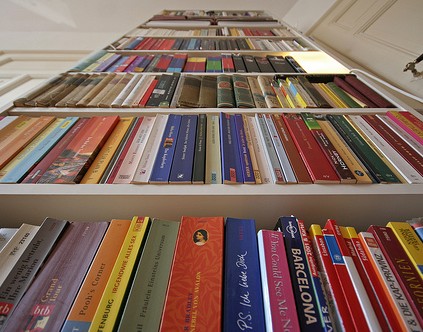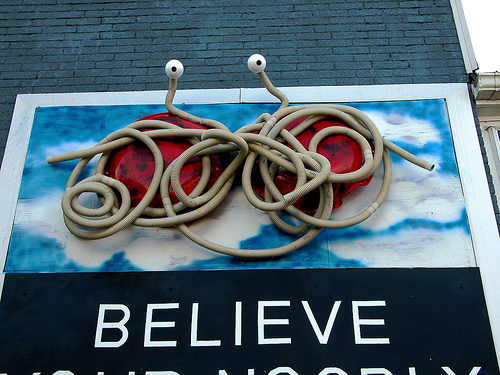Is Self-Publishing a Good Choice for Your Novel?
Today’s guest post is by Jacquelyn Lynn
For a lot of nonfiction books, self-publishing is a no-brainer. But for novels? It’s a viable option growing in popularity, but there’s a lot to consider before you make your decision.
The most important issue for most authors is cost. Publishing done right can be expensive.
When you self-publish or use a pay-to-publish company, you can easily spend spend thousands of dollars to get your book on the market.
If you’re using the right resources, that’s a smart investment to get a quality product. But you have to decide how much you’re willing and able to spend to publish your book.
The other side of cost is revenue.
As the author and publisher, you get all of your book’s profits. If your book sells well, that will be more money in the long run than the royalties you’d receive from a traditional publisher.
And if you’re prolific, you could be looking at a substantial income. Self-published novelists Johnny B. Truant and Sean Platt have built a mini empire that began with novels and grew into their story studio Sterling & Stone (and their nonfiction books on writing and publishing are worth reading).
If you’re a control freak like me, you’re likely to find that you’re more compatible with self-publishing than traditional publishing. Here’s why:
- You have complete control over all the creative elements of your book—the title, manuscript, cover, interior design, and so on. Traditional publishers might consider your input, but they have the final say.
- You set the price and the format. You can raise or lower the price it as you see fit for special promotions or other reasons. You decide on the format—ebook and print book, ebook only, and if you want to add an audiobook.
- You decide when to publish. Self-publishing lets you release your book when it’s ready, not on someone else’s schedule. It typically takes 18-24 months after contract signing for a traditionally published book to be released; self-publishers get their books to market much faster.
- You get the benefit of a quicker publishing process. If your story is time-sensitive—for example, if it’s pegged to current events—your book can be published the moment it’s finished.
- You set—and can change—the work schedule. Life happens, and manuscripts don’t always get finished when we planned. Self-publishing gives you flexibility and lets you work at your own pace.
- You pick your publishing team. When you self-publish, you decide who to use for editing, design, marketing—everyone who is involved in your project. If you don’t like someone for whatever reason, you can fire them.
- You can target narrow niches. If you want to write and self-publish a story with a limited audience, you can do it.
- You maintain your rights. A traditional publishing contract requires you to sign the rights to your book over to the publisher. When you self-publish, you keep the rights for your current work and all future creative work that may come from it. (That movie deal is probably a long shot, but it could happen.)
More Reasons to Self-Publish
The process can be a great learning experience. One budding novelist told me she was seeking a traditional publisher for her second novel, but she was glad she self-published her first because it taught her about publishing and helped her improve her work.
Another significant advantage to self-publishing is that you can actually get your book published.
It’s more difficult than ever for an unknown author to get a contract with a traditional publisher. You can spend years chasing literary agents and pitching your book to publishers before you get a contract—and that might not ever happen. Self-publishing lets you realize your dream of being a published author without that frustration and heartache.
If you’re an established author, self-publishing lets you experiment. An established Christian romance novelist I know is still working with her publisher but also self-publishing fantasy novels under a pseudonym.
Traditionally published New York Times and USA Today best-selling author Rachel Hauck is testing the self-publishing waters.
It’s Not Easy
You may have heard that the biggest challenge for most self-published authors is marketing. It’s more accurate to say that the biggest challenge for most authors, no matter how they’re published, is marketing.
Traditional publishers expect authors to come to the table with a marketing plan and do the lion’s share of the promotion work. Regardless of how you publish, if you hope to be successful, you’ll need to market your books.
I think the biggest challenge for self-published authors is learning the mechanics of the process. While most of it isn’t difficult, it can be overwhelming because there are a lot of moving parts that must work together.
Study everything you can find about the process and the technology that makes it all happen. Read blogs and books, take courses, attend workshops, and network with self-published authors.
Be prepared for the experts to disagree—because they will! Then you need to consider everything you know and decide which opinion to follow.
The publishing industry is changing rapidly. Doors are opening and closing at lightning speed. Dump your preconceptions, and keep an open mind. Even if this isn’t the right time for you to self-publish your novel, things could be different next year.
 Jacquelyn Lynn is an author, business writer, and ghostwriter. She has been traditionally published by major houses and has been self-publishing for the past decade. She wrote The Simple Facts About Self-Publishing: What indie publishers need to know to produce a great book to help authors make good decisions about self-publishing. Her novel, Choices, is the first in the Joyful Cup Story series. For a list of self-publishing tools and resources she uses and recommends, visit her website.
Jacquelyn Lynn is an author, business writer, and ghostwriter. She has been traditionally published by major houses and has been self-publishing for the past decade. She wrote The Simple Facts About Self-Publishing: What indie publishers need to know to produce a great book to help authors make good decisions about self-publishing. Her novel, Choices, is the first in the Joyful Cup Story series. For a list of self-publishing tools and resources she uses and recommends, visit her website.












A very good article with lots of useful information. I published (another book in the process)with a hybrid publishing company which so far I’ve found very satisfactory.
Thanks, Susannah. There are some excellent hybrid publishers out there, and they are a great option for authors who want the control of self-publishing but want someone else to handle the production work.
I’m rather shocked. Why the emphasis on what amounts to vanity publishers of /paperbacks/?
Most Indies publish ebooks and only graduate to print-on-demand paperbacks when/if they manage to generate a large enough following. Even then, Indies can and do publish their own paperbacks.
I recognize that not all self-publishers are capable of learning /all/ the technical aspects involved in either ebooks or paperbacks, but many of these skills can be outsourced, for much less than a so-called ‘hybrid’ publisher would charge.
Honestly, if a company charges a writer to print a book, that company is not a publisher, hybrid or otherwise.